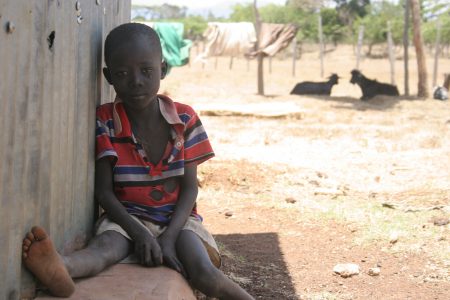By now, most people have heard about the drought and famine in East Africa. The stories and images from the region are disturbing and hard to fathom. Since we hadn’t heard much about it from our partners, Lynda Cherry, our vice-president of International Programs, sent an email inquiring, “How are you doing? What’s going on?” The response was heartbreaking.

Our hospital partners in Kenya are experiencing the devastating effects of the worst drought in 60 years. Crops have failed. Livestock are dying. Food prices are skyrocketing. Water sources are drying up. Dr. Hillary Rono of the Kitale District Hospital reports that the number of patients seeking eye care has dropped by up to 35 percent from the last year’s number. People are too weak to make the journey or simply focused on surviving. Patients arriving for appointments are so severely malnourished that they must be fed before receiving treatment. When we asked our partners what they need most, they were very clear: help us feed our communities.
I want to reiterate: disaster relief is not Operation Eyesight’s mission or what we normally do. However, while we are fully committed to sustainable development, we couldn’t stand by and do nothing. We launched a fundraising appeal last Wednesday with a goal of raising $60,000 for our three Kenyan hospital partners: Kitale District Hospital, Narok District Hospital and Moi Teaching and Referral Hospital.
We are incredibly grateful for the positive feedback and donations that came in as soon as we sent out the online appeal through our e-newsletter and social media platforms. However, we still need your help to achieve our goal.
The direct mail version of our Kenya drought appeal was mailed this week. You can also donate online or by calling toll-free 1-800-585-8265. Your support today will help us raise the money urgently needed to provide food for the starving people our hospital partners reach in Kenya.
A disaster of this scale requires comprehensive solutions from local and international communities. When INGOs, not just disaster relief organizations, work together, we can save the lives of the most vulnerable in our world. Please give today. Thank you.

